Exploring Vajrayana Buddhism
At Gomde Germany-Austria, we are dedicated to fostering a deep understanding and experience of Buddhist meditation, philosophy, and Vajrayana practices. Our seminars offer a unique opportunity to delve into the profound teachings of Buddhism, guided by experienced and qualified masters.
We have been holding seminars and retreats on the following topics (and more) for about 20 years:
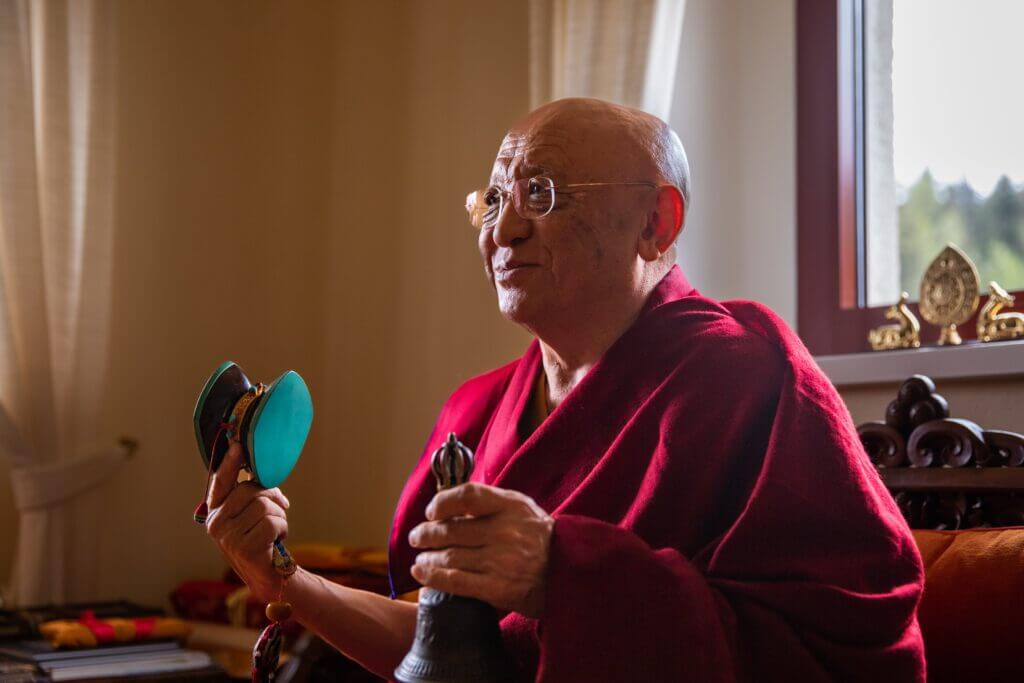
- The Four Mind Changings: The contemplation of the preciousness of human life, impermanence, karma, and the nature of suffering, are the fundament for the path of awakening.
- Shamata and Vipassana Meditation: Learn the art of cultivating focused attention and calm abiding (Shamata) and insight meditation (Vipassana), building a foundation for mental clarity and mindfulness
- Lojong and Tonglen: The compassionate practices of Lojong (mind training) and Tonglen (sending and receiving), nurture the qualities of loving-kindness and compassion in your heart.
- Buddhist Philosophy: Impermanence and the Twelve Links: Contemplate the nature of impermanence and the interdependent cycle of existence through the Twelve Links of Dependent Origination. Four Seals of Dharma: Explore the fundamental truths of Buddhist philosophy encapsulated in the Four Seals, offering insights into the nature of all phenomena.
- Dzogchen and Mahamudra Teachings: The profound teachings of Dzogchen and Mahamudra, two pinnacle practices of Vajrayana, are given by qualified masters who transmit the direct path to realization authentically.
Practices & Deities
At Gomde you can dive into the rich tapestry of Vajrayana practices and deity sadhanas, each offering a unique doorway to transformation
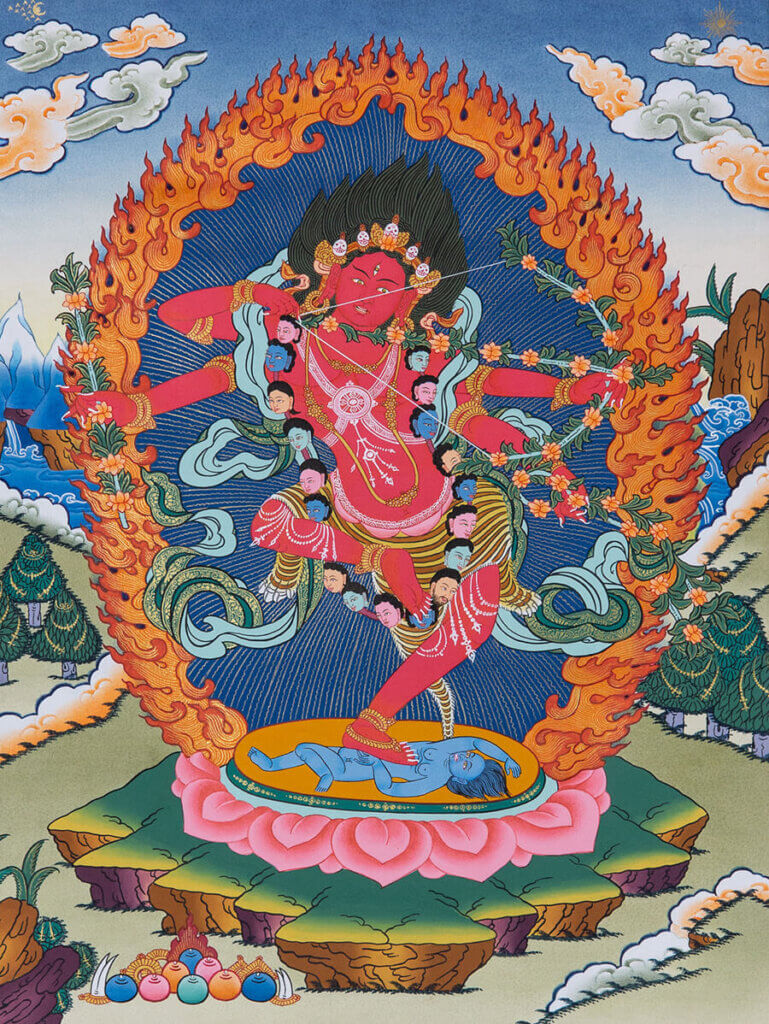
Kurukulle
To practice this deity wakens the power of magnetizing qualities within you through the practice of Kurukulle, embodying fierce compassion.
Vajrakilaya/Dharmapala
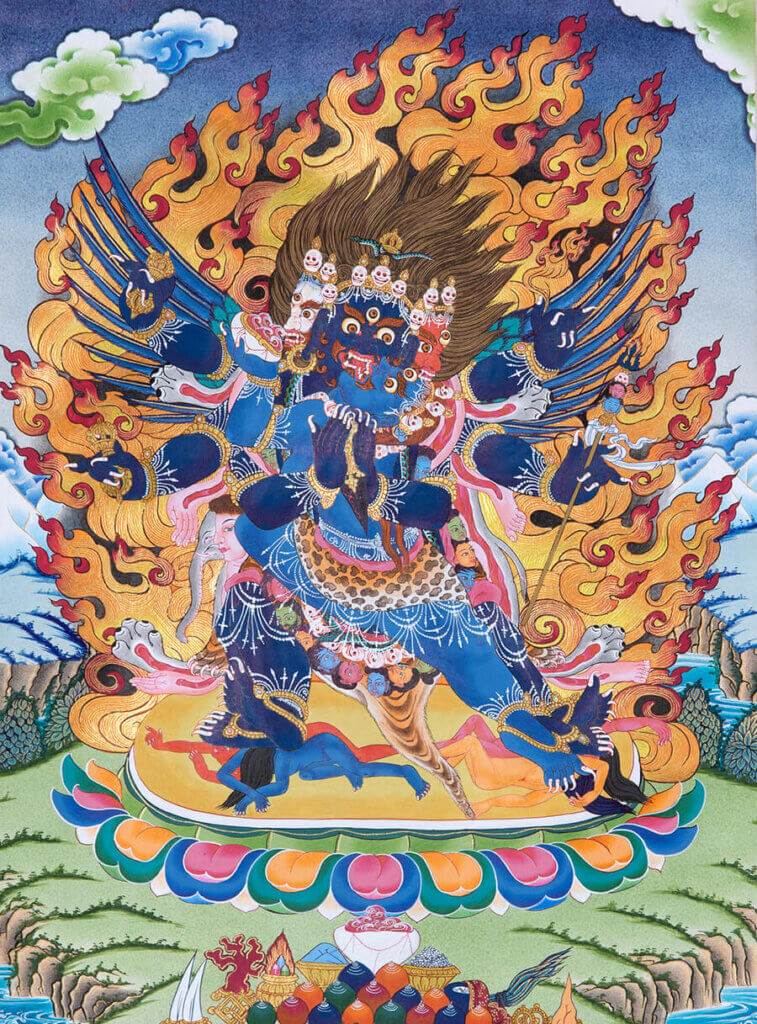
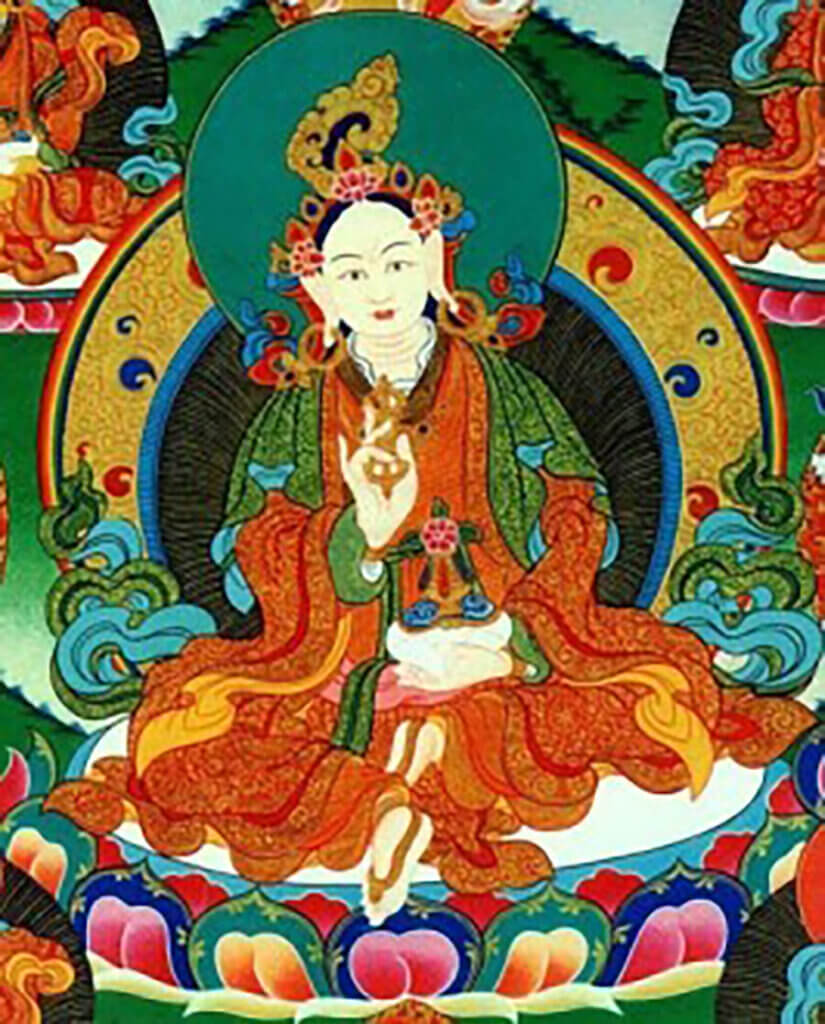
Yeshe Tsogyal
By practicing the sadhana of Yeshe Tsogyal we connect with great wisdom and bliss
Medicine Buddha
Access healing and purification through the practice of the Medicine Buddha.
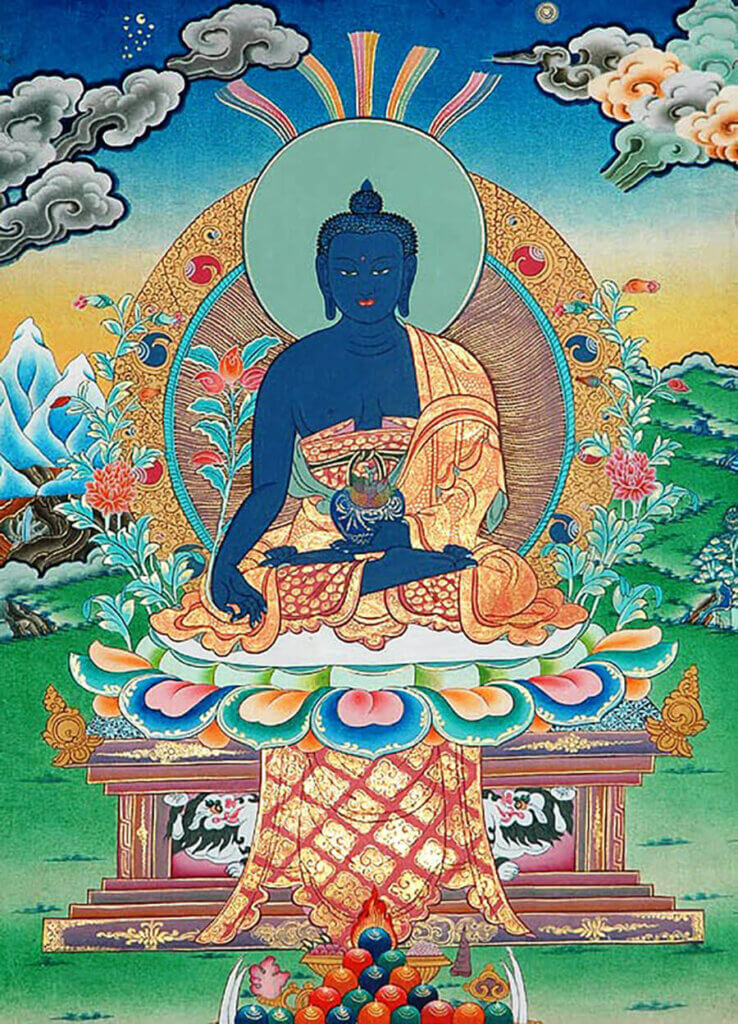
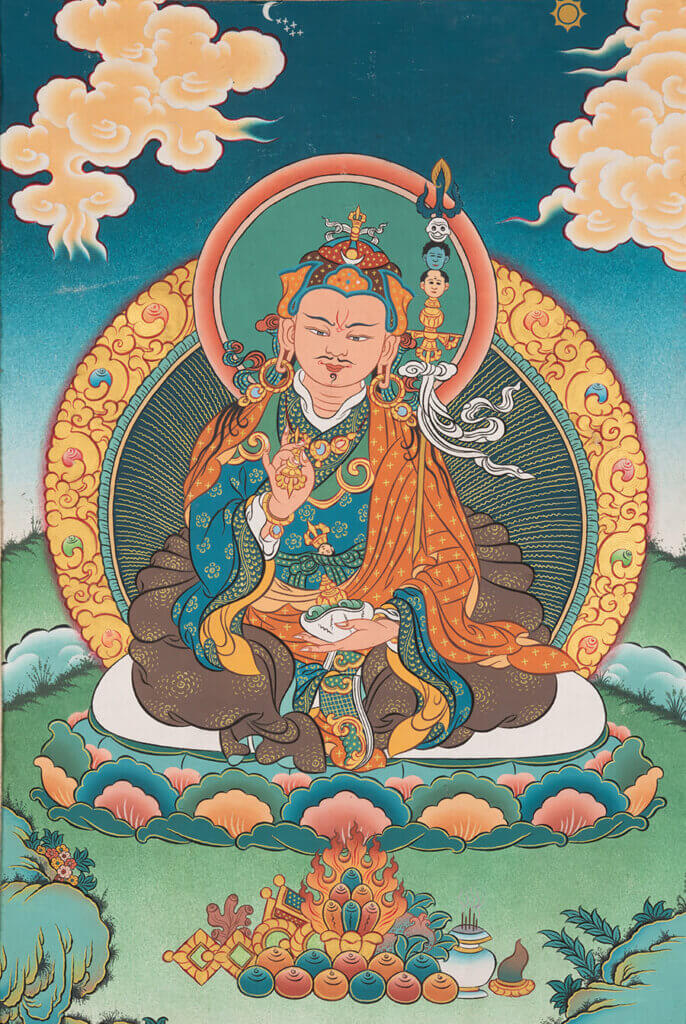
Guru Rinpoche
The great Guru Padmasambhava, who pioneered Buddhism in Tibet, is known as the second Budddha and an embodiment of our innermost nature.
Trinley Nyingpo
We engage in the concise daily practice of Trinley Nyingpo, nurturing a connection to the Three Jewels, with Guru Rinpoche as the main figure of the Sadhana. We also practice the smoke offering of Sangh, everyday.
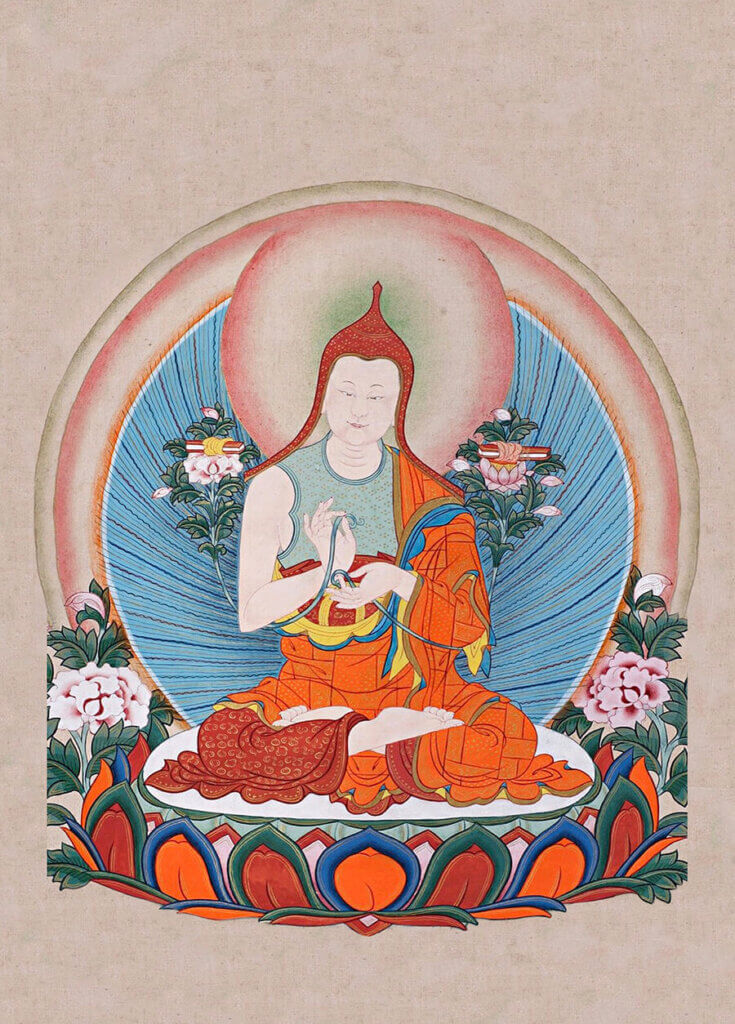
Mawye Senge
By practicing Guru Rinpoche in the form of Manjushri, the Bodhisattva of Wisdom, we evoke wisdom and clarity within our minds.
Green Tara and the 21 Taras
Invoking the 21 Taras, embodiments of compassion, grants protection, swift guidance, and support on the path and worldy matters, such as protection from fear.
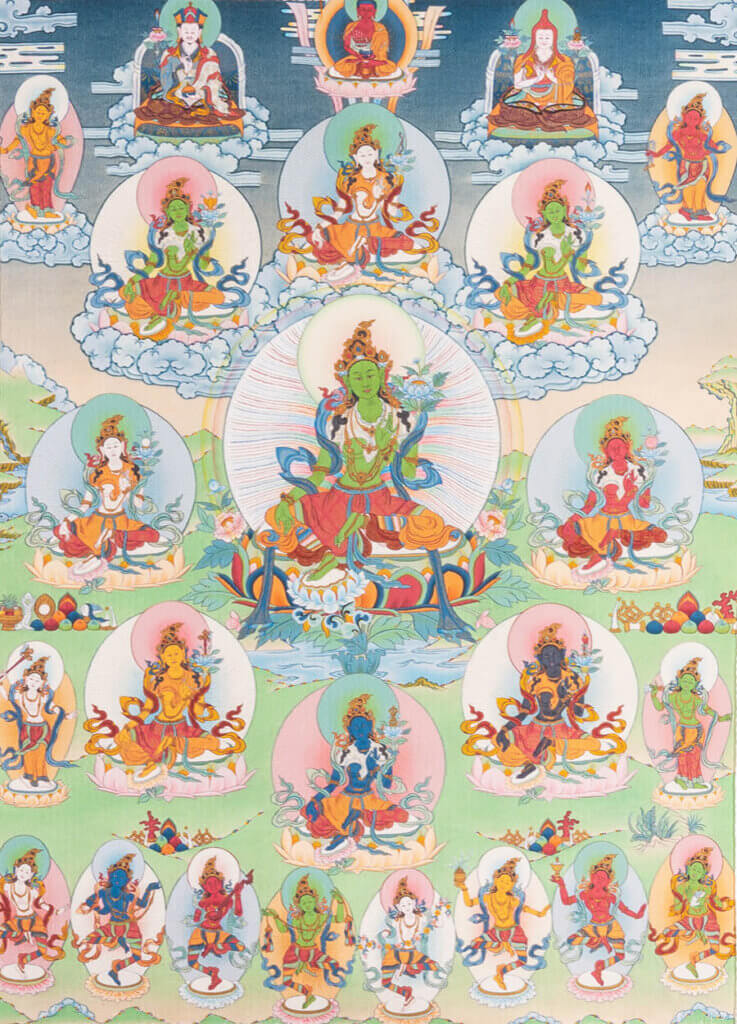

Chöd
Cutting through ego clinging with Machig Labdrön’s profound practice
Ngöndro
Laying the foundation for advanced practices with Ngöndro, the preliminary practices.

Nyungne
This is a fasting and purification practice, associated with the Thousand-Armed Avalokiteshvara.
Sampa Lhündrup
Discover the profound blessings of Guru Rinpoche and enrich the environment through the Sampa Lhündrup practice.
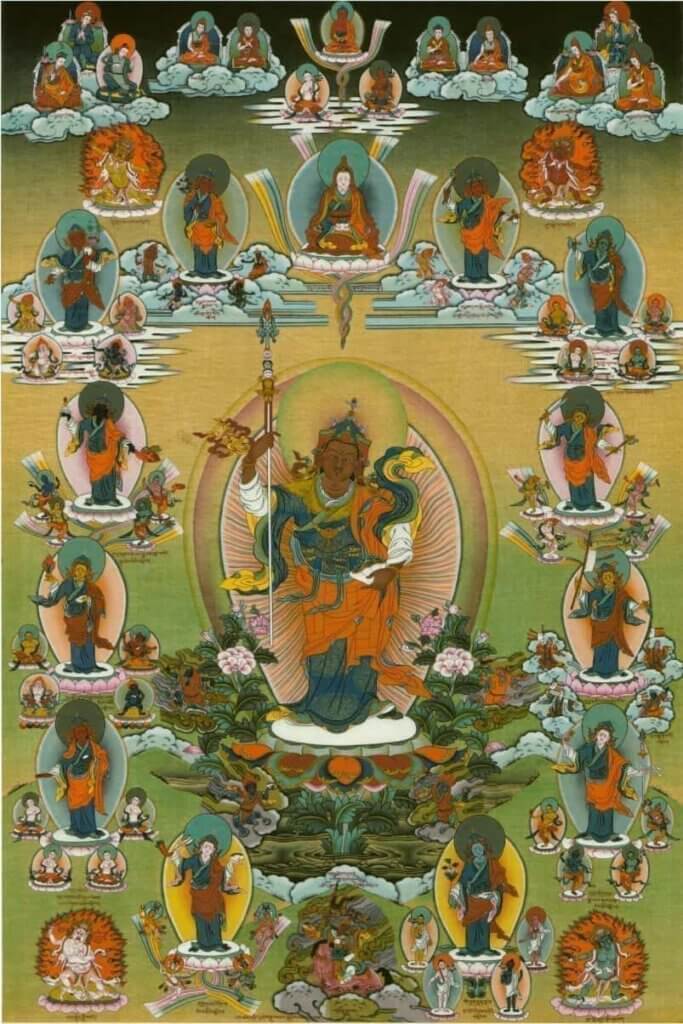
Ngakso
The Ngakso Puja, is a powerful ritual to purify and restore tantric commitments. We practice it at least once a year, in the presence of Chökyi Nyima Rinpoche
Vajrasattva
The purification practice of Vajrasattva enables us to purify karmic imprints, habits and wrong views.

Rüchen
Experienced practitioners are also introduced to this practice to be practiced in retreats.
Buddha Shakyamuni
Through this sadhana, we connect with the historical Buddha’s teachings and profound enlightenment.
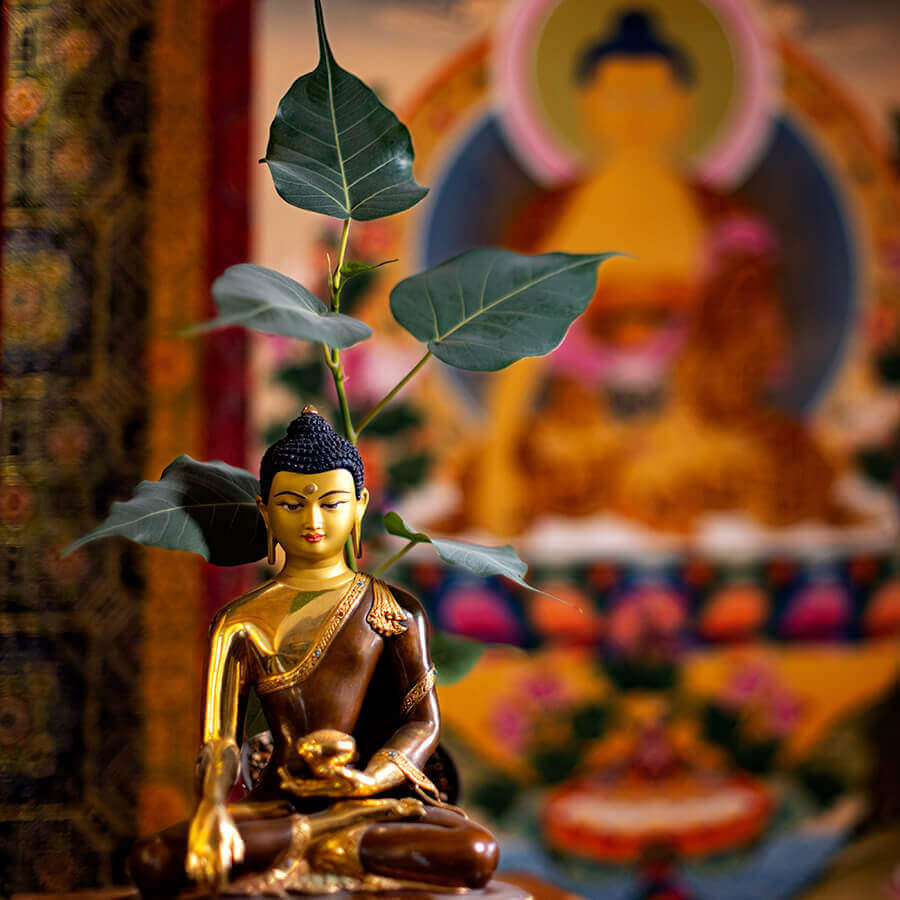
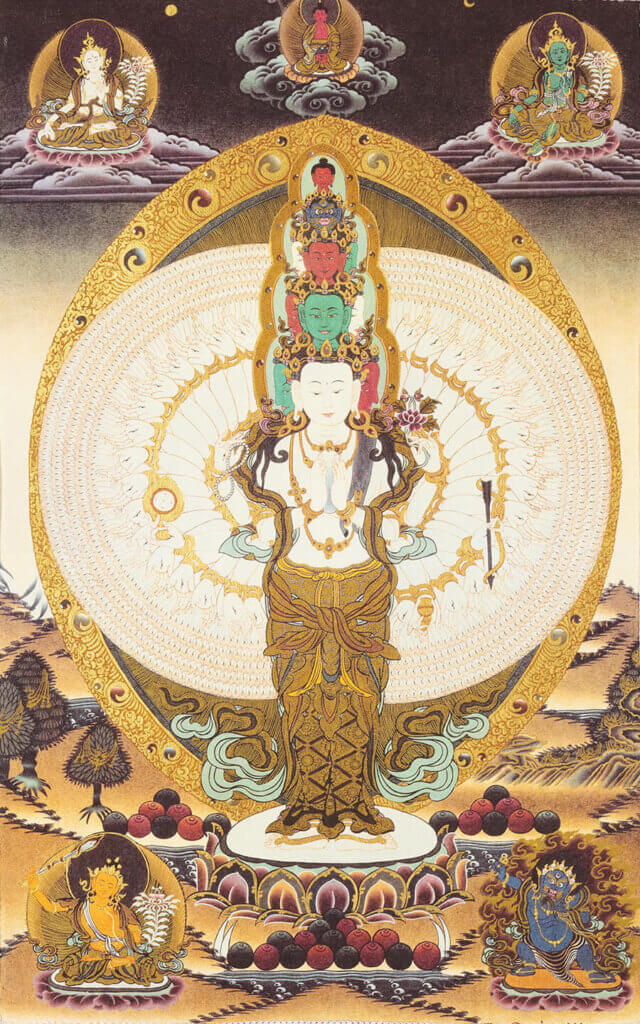
Chenrezig
We evoke the boundless compassion of Chenrezig or Avilokiteshvara, the Buddha of Compassion, with this sadhana as well as during Tonglen practice.
Buddhist Studies Courses
We are thrilled to offer engaging Buddhist Studies courses that bridge the gap between academia and practical application. Our exceptional faculty, including renowned professors like John Dunne, James Gentry, Ana C. Lopes, Julia Stenzel, Karl Brunnhölzl, Klaus Dieter Mathes, and Douglas Duckworth, ensures an enriching and enlightening educational experience.
Course Highlights so far:
Buddhist Philosophy in Comparative Perspective
Buddhism and Science
Buddhism: Meditation, Compassion, Experience
Foundations of Buddhism
We are also blessed by regular teachings by Khenpos of Ka-Nyning Shedrub Ling monastery, who have so far thought:
The Jewel Ornament of Liberation
The Gyud Lama- Buddha Nature
The Gateway to Knowledge
Embodied and contemplative practices and modern approaches
- Yoga and Meditation: Integrate body, breath, and mind through yoga and meditation, harmonizing your physical and mental well-being.
- Medicine and Compassion: Dr. David Shlim
- Ulli Olvedi: Heilende Energie der Elemente, Männliche und Weibliche Energien, Traumyoga, Leben und Sterben, Furcht und Hoffnung, Umgang mit Emotionen, Stilles Qigong
- Johannes Janßen: Klang der Stille- Singseminar
- Erric Solomon: Radikal Glücklich, Wonne als geheime Kraft